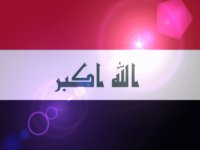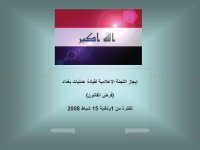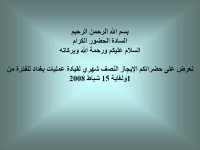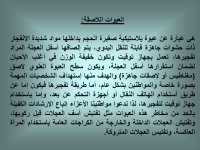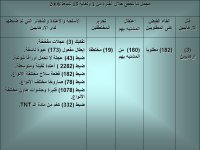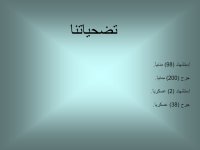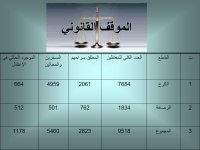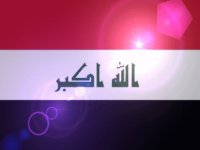
PRESS CONFERENCE: Operational Update: Maj. Gen. Bergner, Maj. Gen. Atta, Feb. 25, 2008
Multi-National Force-Iraq
Maj. Gen. Kevin J. Bergner, MNF-I spokesman, and Maj. Gen. Qassim Atta, Operation Fardh al-Qanoon spokesman, provide an Operational Update on Operation Fardh al-Qanoon, Feb. 25, 2008.
PRESS CONFERENCE:
Major General Kevin J. Bergner, Spokesman, Multi-National Force – Iraq
Major General Qassim Atta, Spokesman, Operation Fardh Al-Qanoon
DATE: February 25, 2008
TRANSCRIBED BY: SOS INTERNATIONAL LTD.
PARTICIPANTS:
Rear Admiral Kevin Bergner
Major General Qassim Atta
REPORTERS:
Courtney Kealy from Fox News
Ahmed Jassem from Al-Arabiya Newspaper
REPORTERS 1-12
*REP1 = REPORTER 1
*INT = INTERPRETER
MAJ GEN QASSIM: Speaks in Arabic.
INT: Ladies and gentlemen. As-Salāmu `Alaykum. At the beginning I would like to thank General Bergner for his invitation to make this press conference today, this joint press conference today. At the beginning and according to the orders from the prime minister, the commander of the armed forces, the Iraqi armed forces, the commanding operation in Baghdad, and in coordination with the other supporting committees for Operation Fardh Al-Qanoon and the Ministry of Oil and the Baghdad Provisional Council, we started to distribute the oil for the people in areas of Ghazaliyhah, Baladiyat, Amariyah, and Ghadiya, and Soma neighborhood… Zafaraniya, allocating 100 liters of oil for each family.
And we started on February 22nd in areas of Salahayia and Haifa Street. The second point that I’d like to make as well is that there are some criminal gangs and…violate and trespass and sabotage the power plants and ask them to transfer the distribution of power. And of course, as you know, this will affect the power distribution that is being done equally on all the places. That’s why Prime Minister Maliki issues order to the Baghdad operation so that they could deal with those criminals and detain them and then prosecute them before the court.
That’s why we ask our citizens to cooperate with the security services to notify us about the…those gangs that violate or sabotage the power plants and the power distribution system in Baghdad. The third point, after the defeat that the terrorist groups witnessed and as a sign of desperation for them, some of those terrorists resorted to some new methods and techniques and those methods have been characterized by us and the Multi-National Forces and we know they…all those things. And among those methods is booby-trapping the disabled or handicapped person and blowing them up from a distance as happened in the Al-Ghazl market and the pet market as well and the Messma intersection in Karrada. The other method they used is using the sticky IED or sticky bombs that they put beneath the cars that parked within the parking places.
Another method they use is booby-trapping the oil wagons that distribute the oil. And as you know, the oil is being distributed through animals that pull those wagons. Or even booby-trapping the animals themselves. And this is what happened in Al-Karrada district. And this led to the injury of three citizens this week. Also there are some IEDs that are being used through putting them in reporting places or some toys so that they could be some traps to some people. As for the sticky IEDs, so that we can give you another idea or a clear idea about those IEDs, they are just small plastic bombs that include highly explosive material and they can be moved manually. And they are put beneath any car and triggered through a remote control.
And it’s usually light so that it could stick easily beneath the car. And the upper part of the IED has duct tape so that you can use it to put under the cars. And it is used to target the Iraqi citizens and some officials. And some of these explosions that happened were the use of those sticky bombs. And they are triggered through the mobile or any kind of remote…a distant, that is, or a timing machine. That’s why we ask our citizens to follow the instructions so that we…some instructions that is to look out for the cars and search their cars before they start driving. And also searching the cars that are parked in and outside the parking places through mirrors. The other point and as you’ve seen last week that the experts at the explosives, they disassembled eight rockets in a truck in al-Baydi area.
And during the dismantling of those rockets, there has been an explosion in one of the rockets inside the truck and this led to the explosion of the other truck or the other rockets in the truck and led to the martyr of 14 members of the Explosive Ordinance Disposal Team. And the Rusafa Operation Command and the result also in the injury of 42 from the national police. And most of them left the hospital after receiving treatment. And we’d like to express our condolences to those…to the families of those who martyred.
The commanding operation in Kukh with cooperation from the Presidential Brigade to seize some expired medicine in Khadamiyah area in Quarter 419 because…and this pharmacy was run by three people and they were detained. And it turned out that they used to forge the expire date through some certain machines…printing machines. And they fill it in some cans and then distribute these medicine to the other pharmacies in Baghdad. And during the operation we confiscated a large amount of expired medicine. It included 15 trucks. And we also seized the special machines that are used in printing the forged date and as you can see in the clip itself here. The battalion that carried out the detention is called the Adalla[ph] Battalion.
It’s led by the second command of the national police and also through members of the Presidential Brigade. That’s why we congratulate all these efforts and those people for the efforts that they’ve done. And also we would like to thank the people who helped us and helped the security services through notifying us about this pharmacy because this tip that we received led to the detention of those people. And on the occasion of the Sha'abaniya visit, as you know, there has been some targeting of the pilgrims that are heading from…to Karbala from Baghdad. The commanding operation in Baghdad issued certain instructions. First, it’s not prohibited to carry any kind of weapon from all the visitors and pilgrims. Second, it’s not allowed to eat and…or drink anything for people whom you don’t know. The areas that the pilgrims should walk are limited to the places that the security services provide.
You shouldn’t believe all the rumors that could cause any panic among the citizens and the pilgrims. You should notify the security services about the different objects or strange objects that you may find on the streets. And a person shouldn’t remove any kind of toy or any strange object like a recorder or any kind of strange object like pens from the street itself. And they should maintain calm and call the security services and cooperate with it in case any kind of incident happened. It’s preferable not to take children with you. These are the instructions that the Baghdad Operation Command issued.
The 5th Brigade from the 6th Division with cooperation from the city council, they managed to liberate a kidnapped…and he was a doctor in Al-Hathiya area. And we managed to detain three of the kidnappers. The 4th Brigade from the 6th Division managed to detain five wanted personnel and seized one booby-trapped trunk or tank. And also they defused 15 IEDs in al-Muthariya Street. And found four weapon cache that included weapons in Al-Karbul area…Janabat and Al-Yusufiyah area. And were able to also destroy 10 mortar rounds. The 6th Battalion managed to defuse one IED in Al-Jihad area and the other in Al-Wazaliyah area.
The 1st Brigade from the 11th Division managed to defuse a booby-trapped house that included a huge amount of explosive in Al-Karrada. And managed to also detain nine terrorists who tried to kidnap one of the Awakening members in Al-Sha’ab[ph] area. And we detained six detainees in Sinic[ph] area and also we liberated one kidnapped person and libera...detained six kidnappers. And also we managed to seize six heaters that are booby-trapped and three Katyusha rockets in Amaralaziz[ph] Street.
The Engineering Battalion managed also to defuse a booby-trapped home in Al-Zafaraniyah area. And as you know, defusing the IEDs and explosives is specialized by the Armed Disposal Team…Ordinance Disposal Team. But recently we have established new units that are specialized or that are within the engineering battalions that work on defusing the bombs and the IEDs. The 5th Brigade managed to find a huge weapon in Al-Gray[ph] area…a weapon cache. The 4th Brigade from the national police also managed to seize a truck that was carrying six rockets. The 1st Brigade from the 9th Division managed to find a weapon cache as well that contained 52 artillery rounds in al-Zafaraniyah area. The 1st Brigade from the 6th Division managed to liberate three…or two kidnapped persons from Al-Ghazaliyah area.
The national police also detained four terrorists…wanted terrorists. And they escaped from Al-Mada’in area. And they were detained by the 8th Brigade in Abaladiyat[ph] area. They also managed to seize a car that belongs to the Ministry of Oil. And also defused certain…several IEDs in the same place. The national police also found a clinic and we detained three suspects in those clinics. The 2nd Brigade from the 11th Division managed to bring back 75 displaced families in the Mahamil[ph] area. One of the major things that we’ve achieved during the past two weeks, we killed three terrorists and detained 182 wanted personnel.
And we detained 180 suspects, liberating 18 kidnaps, defusing three car bombs, defusing 173 IEDs, and seizing 43 vehicles that has illegal license or paperwork. And also we seized 182 different kinds of weapons. And 1,087 mortar rounds. And we also seized 335 kilograms of the TNT. The last point that I’d like to also mention, the number of the detainees from…in Operation Fardh Al-Qanoon ever since the operation started that is: 9,518. Those who have been released are 2,830.
Those who have been referred to court are 5,600. And those who are inside the detention facilities in Baghdad Operation Command are 1,170. This is one of the important things…the major things that I have about briefing the operation of…Fardh Al-Qanoon operation from January until 15…February 15. And now I’d like to give space to Major General Bergner so that he will give you his remarks and what he has done.
MAJ GEN BERGNER: Shukran jaziilan. Thanks, General Qassim. As-Salāmu `Alaykum. Good afternoon everybody. I’ll be very brief. I just have a couple of things that I’d like to address. First, it is a privilege to be here today with my friend, General Qassim, and to be his guest at his press conference.
And I would also like to point out that for the past 12 months, Iraqi and coalition forces have fought with extraordinary courage and made enormous sacrifices to implement Operation Fardh Al-Qanoon. And as General Qassim pointed out in his summary, just over the last two weeks you get a sense of the operational momentum that that is creating. Their collective efforts have certainly improved security for the Iraqi people in Baghdad and across Iraq, but there is still much work ahead of us. The progress is directly enabled by the increasing cooperation between the Iraqi people, their security forces, and the coalition forces.
But the extremists are still dangerous and seek to conduct barbaric attacks as we tragically saw yesterday again. I want to join the Government of Iraq and the United States Embassy in Baghdad in condemning yesterday’s attacks on innocent civilians making their way to Karbala. This indiscriminate violence against people participating in a religious commemoration again shows the nature of this al-Qaeda – Iraq enemy. Yesterday’s attacks and the unified response to them served to demonstrate again the importance of working together as we have so well in Fardh Al-Qanoon and to counter extremism and terrorism.
We are heartened by the courage of the Iraqi people in rejecting these terrorists. But stability will require a sustained commitment. In that regard, we again welcome last Friday’s pledge from al-Sayyed Muqtada al-Sadr to extend the cease fire that has been benefiting the people of Iraq for the last six months. This extension of his August, 2007 pledge of honor to halt attacks is an important commitment that can broadly contribute to further improvement in security for all Iraqi citizens. And it can also foster better prospects for national reconciliation and allow coalition and Iraqi security forces to focus more intensely on al-Qaeda in Iraq.
We also view this extension as an opportunity to further constructive dialogue with groups, including the Sadr Trend, who seek to bring about reconciliation in Iraq. Those who continue to comply with the pledge of honor by al-Sayyed Muqtada al-Sadr will be treated with respect and restraint as we have stated. Iraqi and coalition forces will work closely with the Iraqi people to protect them from those who tarnish the name and the honor of the Sadr pledge by conducting criminal acts.
While the progress that General Qassim addressed and that you have seen in your own first-hand experience is making progress against Iraq’s enemies and it has been significant, we all know there is much more work to do in Baghdad to protect the capital from al-Qaeda and other extremists. Our cooperation is making progress but we still have much more work to do together, as we have worked together from the start of this operation. And I would like to close by saying thank you again to General Qassim for the chance to join him today. And now I will defer to him to take your questions. Shukran jaziilan.
REP1: Asks question in Arabic.
INT: Question from the The Malif[ph] Press. Question to Atta. Do you think Atta will witness for the coming due days during the Sha'abaniya visit a curfew? And what’s the procedures that will be adopted inside Baghdad?
MAJ GEN QASSIM: Speaks in Arabic.
INT: Thank you for this question. According to the intelligence, we know that the terrorists intend to target the visitors and the pilgrims. We issued an order to ban the movement of the wagons that are being pulled by animals. And also we prevented the movement of the motorcycles and the bicycles. But we still haven’t made any decision about the cars and vehicles that is. Hopefully we will be able to maintain control in all areas in Baghdad. There is a coordination between the Iraqi forces and the Multi-National Forces to give us a good air backup in all places in Iraq.
REP2: Asks question in Arabic.
INT: Question to General Atta. Question from Al-Tahaddi Newspaper. Regarding those sticky IEDs, were you able to locate the…where those bombs came from and which country? The second question to General Bergner, what is the stance of the Multi-National Forces from the Turkish invasion? Until now, we haven’t seen any kind of official statement by you.
MAJ GEN QASSIM: Shukran. Speaks in Arabic.
INT: Thank you. We’ve said that the terrorists and this method of using those sticky bombs or IEDs, they aim to influence the citizen and also influence the performance of the security services in Baghdad. They come from different countries; from neighboring countries and also from other countries that [are] away. And most of those IEDs or sticky IEDs are homemade. But the materials are brought from other countries. Now the citizens and due to their cooperation we managed to find some of those bombs. But, of course, you know after an explosion happens, they are harmful. That’s why what we thought to…it will be presented…this whole thing will be presented through making a full report about this new method of IEDs that aims to influence the morale of the people here.
MAJ GEN BERGNER: And really there isn’t anything that the Multi-National Force specifically could address relative to your question. This is something that needs to be referred to the U.S. Embassy in Ankara and to Turkish officials to discuss the nature of the operations in Northern Iraq. Shukran.
REP3: Courtney Kealy from Fox News. This is a question to be answered by both of you if possible, please. Less than one week before Iranian President Mahmoud Ahmadinejad’s visit here, can you please tell us how much involvement and influence Iran has now in aiding in special groups? And also, how much of a problem does Iran pose to both Iraqi and U.S. military?
MAJ GEN BERGNER: I’ll be glad to start. We have been very transparent and very forthcoming for over ten months now in talking about the nature of the support that the special groups receive from the Iranian Revolutionary Guards Corps’ Quds Force in the form of training, in the form of lethal aid and weapons, in the form of funding, and in—as we talked about last summer—in the form of tactical direction at times. It has also included the incorporation of Lebanese Hezbollah operatives like Ali Mousa Dakdouk. And so it has been something that is not contributing to stability and security in Iraq. And we look forward to the prospects of Iran fulfilling its commitment that it has made to the Government of Iraq—at the highest levels—to take measures that will contribute to the stability and security here inside Iraq.
MAJ GEN QASSIM: Speaks in Arabic.
INT: Thank you for this question. I’d like to add one thing. Prime Minister Maliki said that…previously said that the stability in the countries or the neighboring countries serve the stability in Iraq itself. And we have some security agreements with the neighboring countries according to the…controlling the borders and so that we can seize the entrance or the smuggling of weapons inside Iraq. And we hope, of course, and look forward to a good cooperation between us and Iran regarding controlling the borders and also preventing the smuggling of different kinds of weapons inside Iraq.
REP4: Asks question in Arabic.
INT: Question from Al-Faha[ph] Newspaper or Agency…TV. You said you arrested the terrorist groups that targeted the visitors or the pilgrims. Could you give us their nationalities and their backgrounds? Question to Mr. Atta…General Atta.
MAJ GEN QASSIM: Speaks in Arabic.
INT: I think that all the Iraqi citizens have seen the terrorist attacks that targeted the visitors and the pilgrims that are going from Baghdad to Karbala. As for the commanding operations in Baghdad, yesterday a terrorist group started to open fire using a BKC[?] weapon from inside Fawabani[ph] Mosque which is abandoned currently. And they targeted the pilgrims in Al-Doura area in quarter number 830. And they wanted to engage also with the security services in those area. And then one of the terrorists, they through a hand grenade on one of the visitors and this led to the martyr of three people and the injury of 49 others. And they were taken to the hospitals or the hospital. And 40 people have been…or left after receiving the treatment. And also after that, in a few hours the security services received reinforcements and those troops were also redeployed. And according to the intelligence that we received and with support from the Multi-National Forces, we managed to kill five terrorists and we detained two others. And those are the ones who carried out this terrorist attack. And the investigation is still ongoing with them. And hopefully once the investigation is over, we will announce the results about…or give you more details. And I’d like to add that this morning as well, an IED went off in Al-Zafaraniya area and it targeted the visitors or pilgrims that are heading to Karbala. And this led to the martyr of three people. And immediately after that the security services from the 4th Brigade with quick intervention they managed to detain the person who detonated the IED itself through…and because he used a remote control to detonate the…. And now he’s being investigated. And we know that…and as you see, the security services, the Iraqi ones, have a good respond and there is a good cooperation between the Iraqi citizen and the security services. And this trust between both sides and confidence led to the detention of those criminal members who attacked the visitors.
REP5: Asks question in Arabic.
INT: Question from Al-Bagdadiya TV. Question to…there are so many innocent Iraqis that are inside the American detention facilities. Is there a new mechanism to release those people or those detainees?
MAJ GEN BERGNER: Well, first of all, I would say that the Multi-National Force works very hard to ensure that any of those who are detained are detained on the basis of documentation and evidence that clearly associates them with a security threat. And so the individuals in the detention facilities under the coalition’s responsibility are those who represent a security threat to the Iraqi people, to the coalition forces, and to the security in Iraq. Now, as you have seen, the coalition force does have a very deliberate process to screen, to review those cases, and to make decisions on those who no longer represent a security threat and there is a basis for them to be returned to society. And in those cases, the coalition force has been working very hard with Iraqi authorities to make sure that that is an effective and successful reintegration effort. It has included educational programs. It has included jobs programs so that those who do no longer represent a security threat can return to society and have the best prospect of making it a successful reintegration. But that’s the basis for coalition forces detaining. That’s the basis for screening. And then that’s the basis for, over time, releasing those who are no longer a security threat. Shukran.
REP6: Asks question in Arabic.
INT: I have two questions to General Bergner.
REP6: General, I want to ask about the prisoner in the American jail. [continues in Arabic]
INT: The Iraqi detainees that have been detained by mistake with terrorist groups and they were convicted. And some of them have been in the detention facilities for like one year and they have no record and they are characterized as missing. Do you think we can also visit the American detention facility so that we have an idea about the detainees? And because until now or it’s being said that we don’t know the exact number of the detainees. And the second question is to General Atta. Why do we abandon some of the old mechanisms or the methods that the former regime used regarding the borders and the residential areas? When you go to the residential areas, for instance, you can see that there are terrorists inside those places due to the displacement. Why don’t you adopt those old methods so that you can maintain those areas? Because they could be a terrorist on the next door and you may not know. So…we know that there are some city councils. But they are not carrying out their job in a good way. The second thing is the checkpoints are a burden to the Iraqi citizens. Of course we know and we appreciate those efforts but they actually are a burden. When I go to work, I always worry when will I get to work and even those traffic jams on the checkpoints could attract terrorists or suicide bombers. And also we have the places or the entries to get the…or the convoys, the official convoys also.
MAJ GEN BERGNER: Let me start with your question about the accountability for those that are in coalition custody. And it’s something that we take with the greatest seriousness just as you expect us to. Those who are under the control of the coalition are very well accounted for and we are very transparent about their circumstance in detention to include opening our detention facilities for visits by the International Committee for the Red Crescent, the Red Cross. Including government of Iraqi officials to include the minister of human rights and to include even the spokespersons like Dr. Ali Al-Dabbaugh who made a trip to Camp Bucca and walked through the detention facility himself just within the last month. So the transparency and the accountability for our actions and our responsibilities that we incur in detaining individuals here is something we take with the greatest seriousness. And we commit ourselves to being transparent both with the international organizations and with Government of Iraq leaders as well as with the inspector generals and the other compliance agencies within our own government. Our own Department of Defense inspector generals also visit our detention facilities to confirm that we’re fulfilling our international obligations and our humanitarian obligations to not only provide the right level of care of those in our detention but also to ensure that we are accountable for those that we do have in our custody. Shukran.
MAJ GEN QASSIM: Speaks in Arabic.
INT: We always mention that Operation Fardh Al-Qanoon may some cause…or could cause some problems and some trouble for the Iraqi citizen. One of them is the traffic jam. And this is expected from the Iraqi security services. Because we know there are several checkpoints in Baghdad and those checkpoints are carrying out their work in a really good way. Yes, there could be some certain incidents here and there but we would like to stress that there is an exact method of searching so that we can avoid traffic jams as much as possible. And we have a plan. We set a new plan to open…or re-open the blocked streets in Baghdad and we have done that. And after we make sure that the security situation is good. The most important thing is that…how to protect the citizen. Yes, we know he might or he may get late to work or school but it’s important that we protect the Iraqi citizen. Because the Iraqi citizen is targeted now. Now the…after the improvement on the security level, we opened the…some bridges and streets. And also we have an intention to re-open some other blocked streets and bridges. Also, we activated the traffic police that organize the depot or the traffic in the streets. And we hope that there will be cooperation between all sides in this issue. But the convoys of the Iraqi officials, we always say that we ask them to decrease the number of the vehicles. And we also stress on the point of respecting the human rights. And all this goes through the meetings and instructions from the commanding operation in Baghdad. They all talk about reducing the burden and the suffering on the Iraqi citizen through reducing the traffic jam. The city councils or as the question you asked, as you know, the previous period was just a combat period. And what we did is a…was a coordination with the people so that we can stabilize those places that used to be called a hot zone in Baghdad. Now in 2008 with the security improvement, we gave some space to other government services like the city council. Yes, there were city councils that are active in some of the places but they were inactive in other places. Yes, we do need to make the…or we do have some centers or outposts in…joint outposts or the joint security and they provide the security services. But on the long term after the police receives the control, things will be in a better way. We have also instructed the government institutes so that they can help the displaced families to go back to their places. We are also giving instructions to improve the services.
REP7: Asks question in Arabic.
INT: Question from Al-Watiyah[ph] Newspaper. Recently there has been an up-tick in the martyrs of the Armed Disposal Explosive Team due to the terrorist attacks. And we know that they are really skilled people and we can’t…. Why doesn’t the United States—not only the Multi-National Forces, but other forces also—to provide some technical machines in disassembling the IEDs or robots to the Iraqi security forces so that we can limit the casualties among the Iraqi security forces? And we know that the United States reached a really developed technology so why don’t they help the directory of explosives with robots and other…so that we can protect the…those.
MAJ GEN QASSIM: Speaks in Arabic.
INT: Are you asking the General or me?
MAJ GEN BERGNER: Yeah. Well, let me start. I think I can help you with some of that. First of all, we have the same high respect for both the coalition force and the Iraqi forces who perform that very important task for our forces and for the Iraqi people which is to remove explosive ordinance and do it safely. And do it in such a way that we limit any possible risk to the…to innocent people, to our forces, and just as importantly, to those who are the explosive ordinance experts. To that end, we do actually conduct a very detailed training program for explosive ordinance troops. It’s one that involves a great deal of technical expertise. And we do share the technical capabilities that we have where we can with the Iraqi security forces and those who are performing that task for the Iraqi forces. And it will be one of those areas that as Iraqi forces continue to develop you will see increasing amounts of that technology available to them to include the robotics and the other machines that provide such an important role. But I would like to also conclude by just saying that we all accept the inherent risk that these individuals accept. And it’s one that we all owe them a great debt of gratitude for doing because it is one that serves the Iraqi people and the Iraqi forces and the coalition forces. And the tragic loss of those individuals the other day who were dealing with a rocket threat at the time is just another testimony to their sacrifice and their selflessness in being able to do these incredibly dangerous tasks. So we send our thoughts and our prayers to their families. And we want to just recommit our thanks and our appreciation for their service. Shukran.
UNIDENTIFIED: [unintelligible]
MAJ GEN BERGNER: It was a terrible and tragic day. It absolutely was.
MAJ GEN QASSIM: Speaks in Arabic.
INT: Thank you. Yes, I agree with you. Any casualty or even one casualty from the Armed Disposal Team is too much for us and we cannot compensate that because even one casualty is too much for us. Now the Directory of Explosive Ordinance Team has so…or is doing a great job. And as I told you, within two weeks they managed to…. And the Engineering Battalion and the Ministry of Defense and the Multi-National Forces, all those managed to defuse 135 IEDs in Baghdad only. So if those IEDs were not defused, what would have happened? So those efforts are really good and nobody can deny those efforts. However, the directory is now growing. The minister of interior is also following up this thing with coordination with the Multi-National Forces so that this directory will be supplied or it’s technical one will be supplied through…supplied with other machines and technologies. Because it started in April, 2007 when Operation Fardh Al-Qanoon started. And now it’s doing a great job. And as I said, losing just one of them is too much for us.
REP8: Asks question in Arabic.
INT: Nina News Agency to Qassim Atta. Since Operation Fardh Al-Qanoon started there has been talk of making some security gates in Baghdad and there will be some 18 major checkpoints in Baghdad. But until now, none of this happened—those major checkpoints. Most of the vehicles come from outside Baghdad.
MAJ GEN QASSIM: But you are in always a hurry even in spreading the news. We hope that you just appreciate the efforts of the security services. Yes, we do have a plan. And the minister of interior does have a plan to make some main checkpoints and entrances whether in Kukh[ph] or Rusafa area. And they include 18 major checkpoints and they are really…. And hopefully within the coming few weeks, you will witness those checkpoints. But we’re still working on finishing those checkpoints.
REP9: Thank you. Could you tell us anything more about the person responsible for yesterday’s bombing? There were some initial reports that it was another female suicide bomber. Can you confirm that? And secondly, in Karbala itself, what exactly is being done to prevent this from happening again? I mean so far it’s starting to look like a carbon copy of last year. How much…other than frisking every single person who goes through to Karbala, how are you going to prevent more of these things from happening?
MAJ GEN BERGNER: Well, let me…I’ll start and then I’ll defer to General Qassim. And I will start just from the standpoint of what our commanders reported in the wake of that tragic attack yesterday in that General Fadal[ph], who is the police commander on the scene, immediately took charge and did a very good job of dealing with the horrible results of that attack. He is investigating and it is being done as an Iraqi security force investigation. But I want to start off by saying that even in the wake of such a tragic and terrible attack yesterday, the Iraqi security forces responded quite well in dealing with it. And I’ll turn to General Qassim.
MAJ GEN QASSIM: Speaks in Arabic.
INT: Those who follow up the situation Karbala…or if you follow up the situation, you can see that there is a supreme committee that had been established to supervise the situation in Karbala. And this supreme committee is headed by Mr. Sirwan[ph] Al-Wily[ph]. He’s the minister of the state. And also the membership from the General Ali Gadun[ph]. And also from the governor of Karbala and the chief of police in Karbala. And also all those members in the community…in the committee issued some instructions. And there are some searching operations and deployment for the troops with over 40,000 soldiers in Karbala Province only that is. And on the entrances and the…so that we could prevent any kind of Katyusha or mortar attacks. Also we are coordinating with the Multi-National Forces to provide us with some air backup. We also witnessed yesterday and today the presence of the Iraqi helicopters and also carrying out patrols there. Yesterday’s attack in Iskandariyah was a suicide bomber who was wearing a belt bomb and it caused several casualties. And the commanding operation in Baghdad is coordinating with the Multi-National Forces and with other commanding operations to take care of this.
REP10: Asks question in Arabic.
INT: Question from the Associated Press. Question to General Bergner. The Iraqi/Iranian discussions…or the long-term discussions or agreement, what is the negative and the positive points of those…of this long-term agreement in your opinion?
MAJ GEN BERGNER: I’m going to make sure I know which discussions you are talking about. Are you talking about those that are about the border and those negotiations that are underway? I’m not sure which ones you are talking about.
REP10: Speaks in Arabic.
INT: Those discussions are the Iranian…the security long-term agreement. He’s talking about the long security agreement between Iraq and Iran. Could you give us the positive and the negative aspects of this agreement? There is a long-term security agreement between Iraq and the U.S.
MAJ GEN QASSIM: Speaks in Arabic.
INT: Yes, I know that this long-term agreement, it has not started yet. So how can we say that there are positive and negative aspect? Let the discussion or let the agreement start and then we will talk about any positive or negative.
MAJ GEN BERGNER: Shukran jaziilan [laughs].
REP11: Shuhan[ph] News Agency. My first question is to General Bergner.
As for Iran’s president visit to Iraq and how deeply would U.S. military be involved in providing security during the process? What kind of work would the U.S. military be doing during his visit? And the second question is to either general. Basically on the current condition, is there a timetable in sight for the Iraqi troops to take over the security of Baghdad? Thank you.
MAJ GEN BERGNER: To your first question, this is a state-to-state visit and the Government of Iraq is the host and the Government of Iraq is providing the necessary support to host their neighboring president. And to my understanding, they are supporting it in all dimensions. So I believe that’s the clearest answer I can give you at this point in time.
REP11: Thank you.
MAJ GEN QASSIM: Shukran jaziilan. Speaks in Arabic.
INT: Thank you. We always say that the Army and the armed forces work away from the policy…the politics but so when we listen or we hear any questions for politics…. Yes, our forces will be able to provide protection for the visits made by the Iranian president. The other point that—which is important—there is an increase in the ability of the Iraqi security forces whether from the Iraqi Army or from the national police or the police itself. And the Iraqi security forces took over security in several…or in several provinces in Baghdad. And we have a timetable with the Multi-National Forces to hand over the security gradually in the rest of the provinces and areas. And of course, this year we’ll witness the take over of security from…in other places. And also we feel relieved through all those great steps and important steps that have been achieved and also for the increased development of the Iraqi security forces. Last question.
REP12: Ahmed Jassem. Asks question in Arabic.
INT: Question from Al-Arabiya Newspaper to General Atta. During Operation Fardh Al-Qanoon the…there are some allocations ascribed to or given to the Iraqi security forces but I don’t think the…some soldiers are not included. Some of them are and some of them are not included with some allocations or danger allocations. Because when we go out in the street, we get to see some soldiers and…or the…one of the civil defense, he and his body guard have casualties due to one of the attacks. So we also hope that he can allocate some money to all the security services.
MAJ GEN QASSIM: Speaks in Arabic.
INT: Well, you have witnessed the great role that the director of the civil defense did starting from Major General Abdul Assul[ph] until.... And also they contributed in a good way in extinguishing all the fires in Lutifiyah and Doura area. And we were present with them when the…. And also I salute them through the media and appreciate their efforts because they deserve more than that or more than the allocations that they receive or allowances. And we are looking into this so that we can include all the members that work in Operation Fardh Al-Qanoon with allowances or further allowances because they deserve that and they deserve more. Thank you for your question. Thank you very much for coming today. And hopefully we will meet again. And also I would like to thank Major General Bergner to give me this opportunity today. Thank you and good-bye.
MAJ GEN QASSIM: Shukran jaziilan.
MAJ GEN BERGNER: Shukran jaziilan.
MAJ GEN QASSIM: Ma’salama.
MAJ GEN BERGNER: Thank you.
|
NEWSLETTER
|
| Join the GlobalSecurity.org mailing list |
|
|
|


